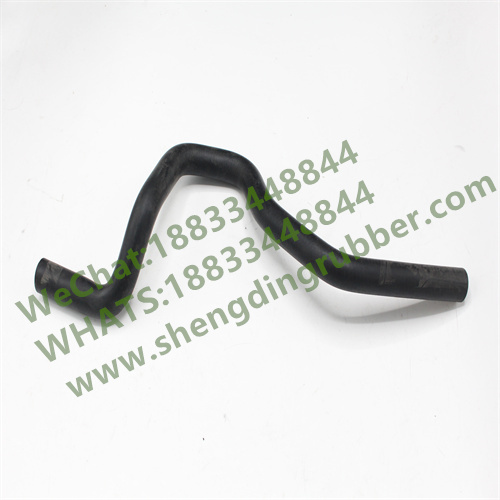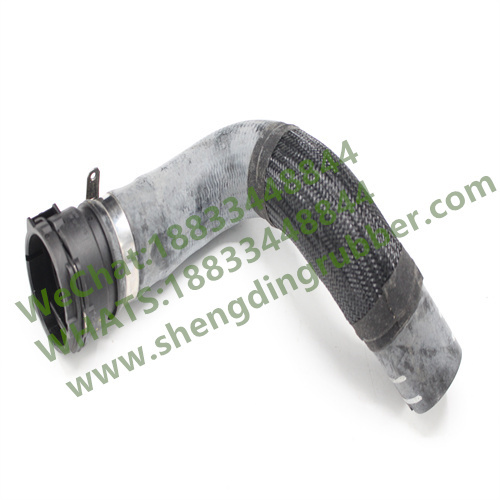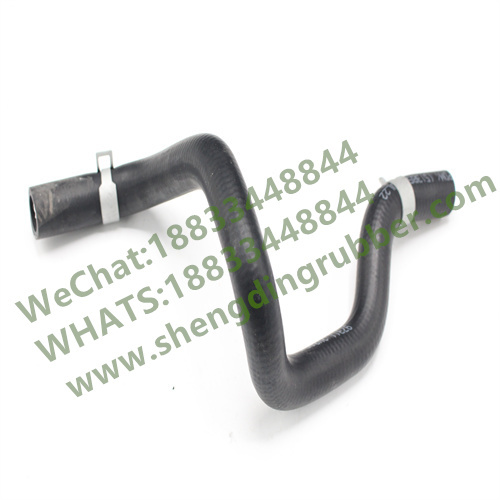The Ultimate Guide to Selecting the Right Electrical Hose for Your Toyota or Lexus
Release Time:
Mar 30,2025
The Ultimate Guide to Selecting the Right Electrical Hose for Your Toyota or Lexus Table of Contents Understanding Electrical Hoses The Importance of Quality in Electrical Hoses Types of Electrical Hoses for Toyota and Lexus Key Factors to Consider When Selecting Electrical Hoses How to Measure and Install Electrical Hoses Recommended Brands and Manufacturers Commo
The Ultimate Guide to Selecting the Right Electrical Hose for Your Toyota or Lexus
Table of Contents
- Understanding Electrical Hoses
- The Importance of Quality in Electrical Hoses
- Types of Electrical Hoses for Toyota and Lexus
- Key Factors to Consider When Selecting Electrical Hoses
- How to Measure and Install Electrical Hoses
- Recommended Brands and Manufacturers
- Common Mistakes to Avoid When Choosing Electrical Hoses
- Frequently Asked Questions
- Conclusion
Understanding Electrical Hoses
Electrical hoses play a vital role in the functionality of your Toyota or Lexus. They are designed to protect and carry electrical wiring and components, ensuring that your vehicle's electrical systems operate smoothly. Unlike standard hoses, electrical hoses are constructed with specialized materials that are resistant to external factors such as heat, moisture, and chemicals. Understanding the purpose and construction of these hoses is the first step in making an informed choice for your vehicle.
The Function of Electrical Hoses
Electrical hoses serve several key functions:
- **Protection**: They shield electrical wires from environmental hazards, preventing shorts and damage.
- **Insulation**: Their materials provide essential insulation to minimize electrical interference.
- **Flexibility**: A well-designed electrical hose maintains flexibility, allowing for ease of movement and installation in tight spaces.
The Importance of Quality in Electrical Hoses
Choosing high-quality electrical hoses is crucial for the longevity and reliability of your vehicle. Poor-quality hoses can lead to electrical failures, which may cause significant problems down the line. When selecting hoses, consider the following aspects:
Durability
High-quality electrical hoses are designed to withstand varying environmental conditions. They are less likely to crack, fray, or degrade over time, providing peace of mind as you drive.
Performance
Quality hoses contribute to optimal electrical performance. They help maintain the efficiency of your vehicle's electrical system, preventing issues like flickering lights, dead batteries, and malfunctioning accessories.
Types of Electrical Hoses for Toyota and Lexus
When selecting electrical hoses for your Toyota or Lexus, it's essential to familiarize yourself with the various types available. Each type serves a specific purpose and offers unique benefits.
Silicone Electrical Hoses
Silicone hoses are known for their exceptional temperature resistance and flexibility. They are ideal for high-performance applications where heat can be a concern.
Rubber Electrical Hoses
Rubber hoses are the most common type found in vehicles. They offer good durability and are suitable for a wide range of applications, making them a popular choice for many DIY enthusiasts.
Plastic Electrical Hoses
Plastic hoses are lightweight and resistant to chemicals. They are often used in applications where weight reduction is a priority.
Hybrid Electrical Hoses
Hybrid hoses combine the benefits of different materials, offering versatility and enhanced performance. They are suitable for specialized applications where both heat resistance and flexibility are required.
Key Factors to Consider When Selecting Electrical Hoses
Choosing the right electrical hose requires a careful evaluation of several key factors. Below are essential considerations to guide your selection process:
Compatibility with Vehicle Model
Ensure that the electrical hose you select is compatible with your specific Toyota or Lexus model. Refer to your vehicle's manual or consult with a professional to find the right specifications.
Temperature Resistance
Different hoses have varying temperature ratings. Choose a hose that can withstand the temperature extremes that your vehicle may encounter.
Length and Diameter
Measuring the required length and diameter of the hose is crucial. A hose that is too long or short can affect performance and lead to installation difficulties.
Material Quality
Select hoses made from high-quality materials that provide durability and performance. Check for certifications and compliance with industry standards to ensure reliability.
How to Measure and Install Electrical Hoses
Getting the right fit is essential for the performance of electrical hoses. Follow these steps to measure and install them properly:
Measuring Electrical Hoses
1. **Determine the Hose Length**: Measure the distance between connection points. Allow extra length for bends and fittings.
2. **Measure Diameter**: Use a caliper or ruler to measure the diameter of the existing hose or the fitting it will connect to.
Installation Process
1. **Prepare the Area**: Ensure the installation area is clean and free of debris.
2. **Cut the Hose**: If necessary, cut the electrical hose to the required length, ensuring clean, straight edges.
3. **Connect the Hose**: Fit the hose onto the connection points, ensuring a snug fit to prevent leaks.
4. **Secure with Clamps**: Use appropriate clamps to secure the hose in place, ensuring it won't move during operation.
Recommended Brands and Manufacturers
While selecting the right electrical hose, consider reputable brands known for quality and reliability. Here are some recommended manufacturers:
1. Gates
Gates is a well-respected brand in the automotive industry, offering a wide range of high-quality hoses, including electrical options.
2. Denso
Denso is known for its innovative automotive components, including electrical hoses that meet OEM specifications.
3. ACDelco
ACDelco offers reliable auto parts, including electrical hoses designed for various vehicle makes and models.
Common Mistakes to Avoid When Choosing Electrical Hoses
To ensure a successful selection and installation, avoid these common pitfalls:
1. Ignoring Compatibility
Always verify that the hose is compatible with your vehicle model. Ignoring this can lead to performance issues and potential damage.
2. Overlooking Quality
Choosing low-quality hoses may save you money initially, but it can lead to costly repairs down the line. Invest in quality for peace of mind.
3. Poor Measurements
Accurate measurements are crucial. Double-check lengths and diameters to avoid installation challenges.
Frequently Asked Questions
1. How often should I replace electrical hoses in my Toyota or Lexus?
Typically, electrical hoses should be inspected every few years and replaced if signs of wear or damage appear.
2. Can I use any electrical hose for my vehicle?
No, it's essential to choose hoses specifically designed for your vehicle model to ensure compatibility and performance.
3. What are the signs of a failing electrical hose?
Common signs include fraying, cracking, or electrical issues in your vehicle, such as flickering lights or malfunctioning accessories.
4. Are silicone hoses better than rubber hoses?
Silicone hoses offer superior temperature resistance and flexibility, making them ideal for high-performance applications, but rubber hoses are more common and cost-effective for general use.
5. Can I install electrical hoses myself, or should I hire a professional?
If you're experienced with vehicle maintenance, you can install electrical hoses yourself. However, if you're uncertain, it's wise to consult a professional mechanic.
Conclusion
Selecting the right electrical hose for your Toyota or Lexus is a critical task that can impact the overall performance of your vehicle's electrical system. By understanding the types of hoses available, considering key factors during selection, and following proper installation techniques, you can ensure that your vehicle runs smoothly and efficiently. Remember to prioritize quality and compatibility, and consult professionals if needed. With this guide, you are now equipped to make informed decisions and enhance the longevity and reliability of your Toyota or Lexus.
Key words:
What Else Might You Learn?







